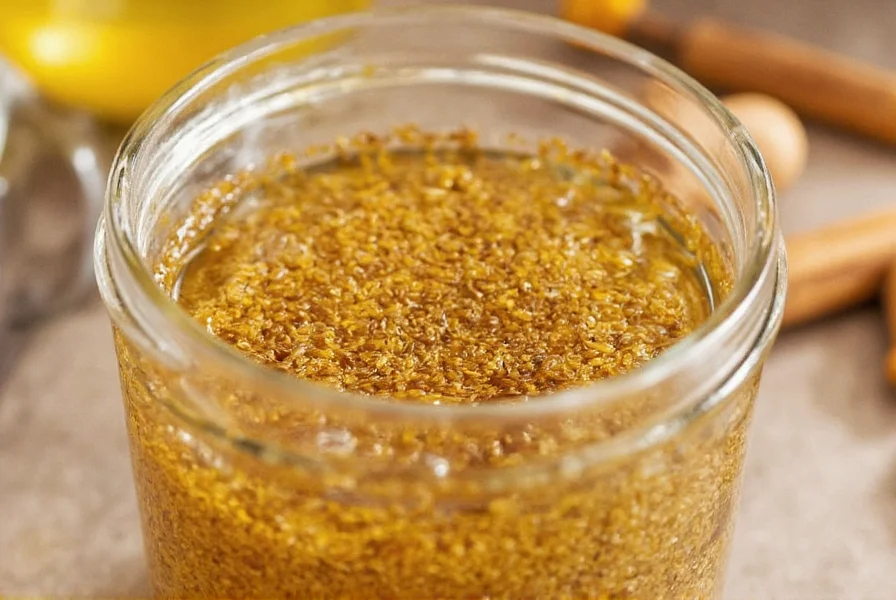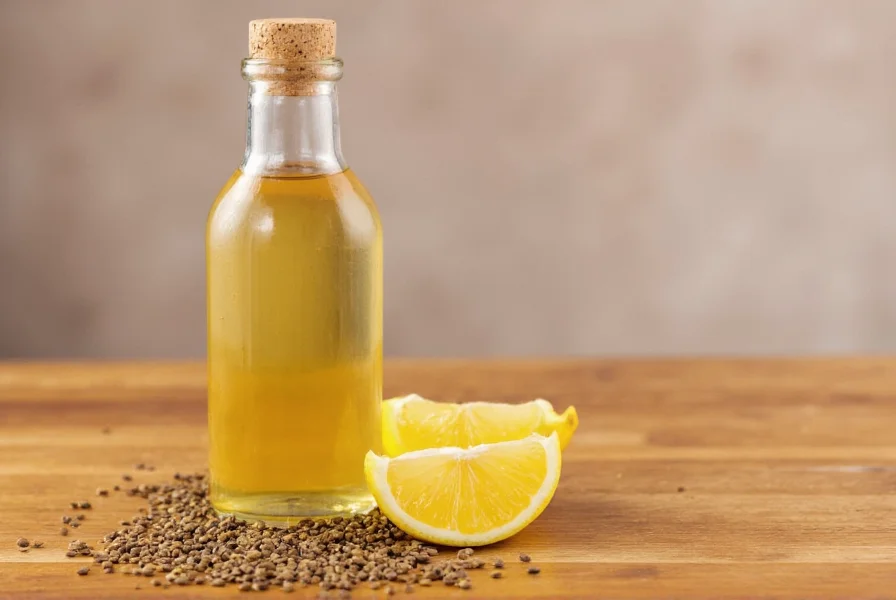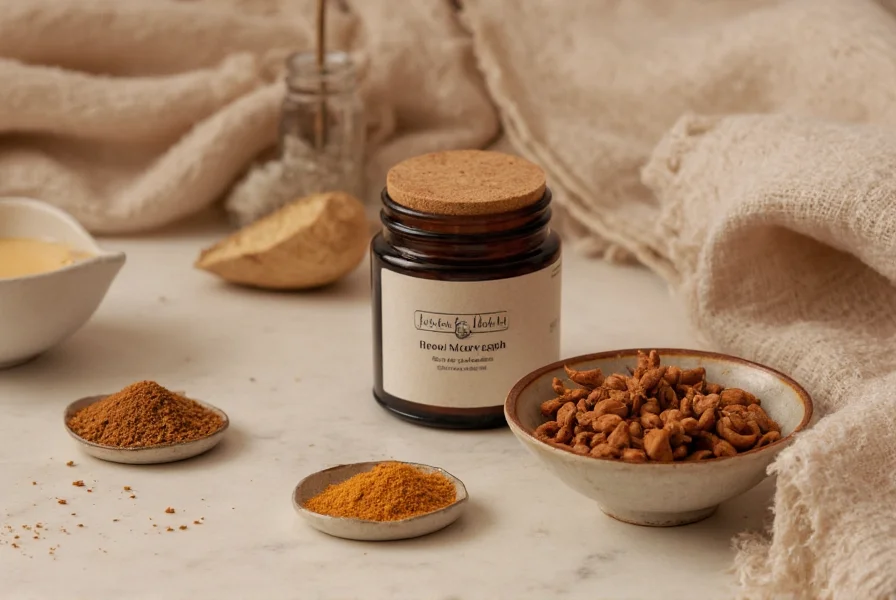Cumin water has been used for centuries across Middle Eastern, Indian, and Mediterranean cultures as part of traditional wellness practices. This simple preparation leverages the bioactive compounds in cumin seeds, particularly cuminaldehyde, which preliminary research suggests may offer several health-supportive properties. While not a miracle cure, understanding what science actually says about cumin water can help you make informed decisions about incorporating it into your wellness routine.
The Science Behind Cumin Water Benefits
Modern research is beginning to validate some traditional uses of cumin. A 2020 review published in Molecules highlighted cumin's significant antioxidant properties, primarily attributed to cuminaldehyde and other volatile oils. These compounds may help combat oxidative stress in the body. When prepared as cumin water, these beneficial compounds become water-soluble and potentially more bioavailable.
One of the most well-documented potential benefits relates to digestive health. A clinical trial involving 57 participants with irritable bowel syndrome found that cumin extract significantly reduced abdominal pain and bloating compared to placebo. While this study used concentrated extract rather than water preparation, it suggests the digestive benefits may translate to more traditional preparations.
| Compound | Natural Source in Cumin | Potential Benefit |
|---|---|---|
| Cuminaldehyde | Essential oil (30-50%) | Antioxidant, anti-inflammatory |
| Thymol | Essential oil (15-30%) | Digestive support, antimicrobial |
| Flavonoids | Non-volatile compounds | Antioxidant properties |
| Phenolic acids | Non-volatile compounds | Anti-inflammatory effects |
How to Prepare Authentic Cumin Water
Traditional preparation methods maximize the extraction of beneficial compounds while maintaining safety. For basic cumin water:
- Measure 1 teaspoon of whole cumin seeds
- Add to 1 cup (8 ounces) of filtered water
- Option 1 (Soaking method): Let seeds soak overnight at room temperature
- Option 2 (Boiling method): Bring to boil, then simmer for 5-8 minutes
- Strain the liquid before consumption
The soaking method preserves more heat-sensitive compounds, while boiling extracts additional components. Many traditional practitioners recommend drinking cumin water first thing in the morning on an empty stomach for optimal digestive benefits of cumin water.

Evidence-Based Health Considerations
When examining the scientific evidence behind cumin water for weight loss claims, research shows modest effects. A 2019 clinical trial with 88 overweight women found that those consuming cumin powder daily lost slightly more weight than the control group over 8 weeks. However, the study used concentrated powder, not water preparation, and the difference was relatively small (approximately 1.5 pounds more).
For blood sugar management, animal studies show promising results, but human evidence remains limited. A small pilot study suggested cumin might improve insulin sensitivity, but larger clinical trials are needed before making definitive claims about cumin water for blood sugar management.
Traditional uses of cumin water for menstrual discomfort have some scientific backing. Research indicates cumin may have mild antispasmodic effects that could potentially ease cramps, though more targeted studies are needed.
Safety and Potential Side Effects
Cumin water is generally safe when consumed in culinary amounts, but certain precautions apply:
- Pregnant women should limit consumption as high doses may stimulate uterine contractions
- Those with bleeding disorders should consult a healthcare provider due to potential anticoagulant effects
- May interact with diabetes medications by enhancing their effects
- Rare cases of allergic reactions, particularly in those sensitive to other Apiaceae family plants
When prepared properly, cumin water side effects are minimal for most people. However, consuming excessive amounts (more than 3 cups daily) could potentially cause digestive upset or other adverse effects.
Integrating Cumin Water Into Your Wellness Routine
For those interested in trying cumin water, consider these evidence-informed recommendations:
- Start with small amounts (1/4 to 1/2 cup) to assess tolerance
- The best time to drink cumin water appears to be first thing in the morning
- Combine with other healthy habits rather than expecting standalone results
- Be consistent for at least 4-6 weeks to properly assess effects
- Use fresh, high-quality cumin seeds for maximum potency
Remember that cumin water should complement, not replace, evidence-based medical treatments. It's one component of a holistic approach to wellness that includes balanced nutrition, regular physical activity, and adequate sleep.

Conclusion: A Balanced Perspective on Cumin Water
Cumin water represents an interesting intersection of traditional wisdom and modern science. While not a cure-all, emerging research supports some of its traditional uses, particularly for digestive health. The scientific evidence on cumin water benefits continues to evolve, with more human studies needed to confirm many potential applications.
When prepared properly and consumed as part of a balanced lifestyle, cumin water appears to be a safe and potentially beneficial addition to your wellness routine. As with any natural remedy, maintain realistic expectations and consult healthcare professionals about any specific health concerns rather than relying solely on traditional preparations like cumin water for serious medical conditions.
What are the proven health benefits of cumin water?
Research shows cumin water may support digestive health through its antioxidant compounds like cuminaldehyde. Some studies suggest modest benefits for digestion and potential anti-inflammatory effects, but many claimed benefits require more human research. It's not a substitute for medical treatment.
How should I prepare cumin water for maximum benefits?
For optimal preparation of cumin water, use 1 teaspoon of whole cumin seeds per cup of water. You can either soak overnight at room temperature or simmer for 5-8 minutes. Strain before drinking. The soaking method preserves more heat-sensitive compounds, while boiling extracts additional components.
When is the best time to drink cumin water?
Traditional practice and some research suggest drinking cumin water first thing in the morning on an empty stomach may provide optimal digestive benefits. However, it can be consumed at other times based on personal preference and tolerance.
Are there any side effects of drinking cumin water regularly?
Cumin water is generally safe when consumed in culinary amounts. Potential cumin water side effects may include digestive upset with excessive consumption (more than 3 cups daily), possible interactions with diabetes medications, and caution for pregnant women due to potential uterine stimulation effects at very high doses.
Can cumin water help with weight loss?
Some studies show modest weight loss effects with concentrated cumin supplements, but evidence specifically for cumin water for weight loss is limited. Any effects would likely be minimal and should be viewed as complementary to a healthy diet and exercise regimen, not as a standalone solution.











 浙公网安备
33010002000092号
浙公网安备
33010002000092号 浙B2-20120091-4
浙B2-20120091-4